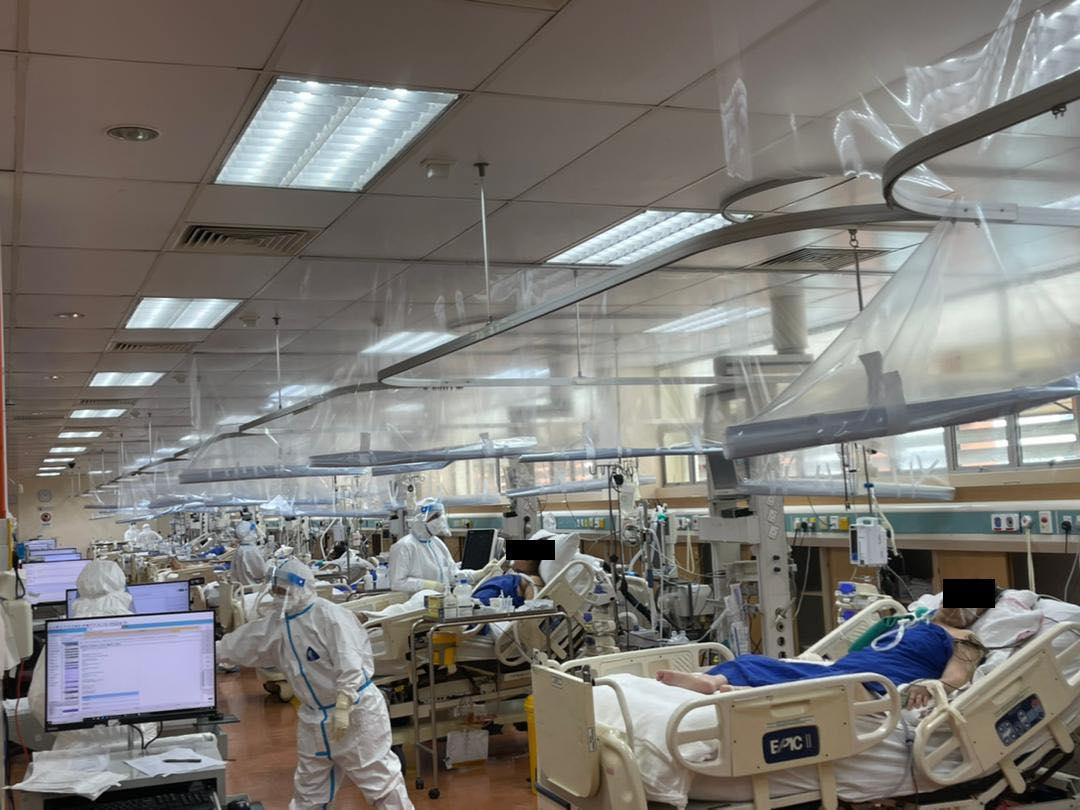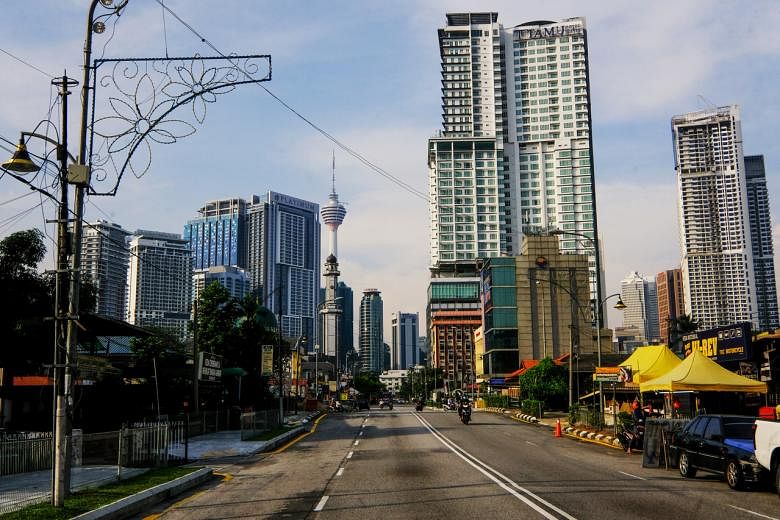KUALA LUMPUR - Malaysia on Saturday (May 22) ordered malls, restaurants and shops to operate shorter hours from Tuesday, as the government took several steps in its effort to suppress a big spike in Covid-19 cases and deaths.
The government also wants 80 per cent of civil servants, or 750,000 people, to start working from home. The private sector has been advised to allow 40 per cent of their staff to do the same.
Businesses will be allowed to operate only from 8am to 8pm, instead of shutting down at 10pm.
The government had on May 12 barred dining at restaurants and food stalls, but allowed takeaways and delivery orders.
The announcement was made in a news conference beamed live over television by Senior Minister (Security cluster) Ismail Sabri Yaakob and health director-general Noor Hisham Abdullah.
"The emergence of new, aggressive Covid-19 variants has contributed to the spike in cases. Therefore, stricter measures need to be put in place to contain it," said Datuk Seri Ismail.
"Since businesses close at 8pm, there is no need to go out. The government can impose all kinds of restrictions but ultimately, our self-discipline to quarantine ourselves matters the most."
But acceding to pressure from big corporations and small traders, which depend on daily sales of their products to survive, Mr Ismail said the government won't force factories to shut or bar pasar malam (night markets) from operating.
He said public transportation will be limited to only 50 per cent capacity, and more roadblocks will be mounted.
Malaysia is into the second week of a four-week movement control order (MCO), but Covid-19 cases have continued to surge in recent weeks.
Dubbed MCO 3.0, the ongoing curbs bar inter-state and inter-district travel.
The announcement followed concerns about the spike in Covid-19 cases and about the already weak economy, which could be badly affected if a stricter MCO is imposed.
Finance Minister Tengku Zafrul Abdul Aziz said at a separate event that shutting down most of the economy could cause a million people to lose their jobs.
Daily number of cases in the past four days was above 6,000, with the highest recorded on Thursday, at 6,806, along with a record 59 deaths on the same day.
Malaysia on Saturday reported 6,320 cases and 50 fatalities.
The surge in cases has strained the healthcare system, including intensive care units designated for Covid-19 patients in hospitals around the country.
Tan Sri Dr Noor Hisham said on Facebook on Saturday that public hospitals in the Klang Valley, including Kuala Lumpur, are working at an average of 113 per cent as more patients fall critically ill.

"To cope with the increase, hospitals have had to repurpose other areas, such as normal wards, into temporary ICU by equipping beds with certain equipment.
"However, this also reduces the chance of non-Covid-19 patients getting the necessary critical care," he wrote.
MCO 3.0 started on May 12, a day before Hari Raya Aidilfitri, and will last until June 7.
Malaysia imposed MCO 1.0 between March and May last year, shutting down malls, offices and most factories, and allowed only essential services like medicine halls and supermarkets to remain open.
In MCO 2.0, imposed for most states between late-January and early March this year, malls and most factories were allowed to operate.
Do's and Don'ts in tighter Malaysia's MCO 3.0
Malaysia on Saturday announced stricter measures for its ongoing Movement Control Order (MCO), dubbed MCO 3.0 as it is the third nationwide lockdown since last year.
MCO 3.0 started on May 12 and is set to end of June 7.
Here are some Do's and Don'ts:
Do's
• Work from home for 80 per cent of civil servants, and 40 per cent of private sector employees.
• Malls, restaurants, grocery stores and laundromats will shut two hours earlier, with operating hours between 8am and 8pm.
• Factories to remain open, with strict health protocols.
• Police to mount more roadblocks and more enforcement checks to be conducted on business premises.
• Online and TV education for students.
• Marriage ceremonies and registrations allowed, with strict heath protocols.
Don'ts
• No inter-district or inter-state travel or tourism activities, except for work.
• No dining in at restaurants, cafes and food stalls.
• No more than three people
in one vehicle, even for those from the same household.
• No physical contact sports.
• Spas, reflexology centres,
nightclubs, pubs, theme parks, indoor playgrounds, family karaoke centres and cinemas to close.
• No social activities and business events such as gatherings, seminars or face-to-face meetings.












